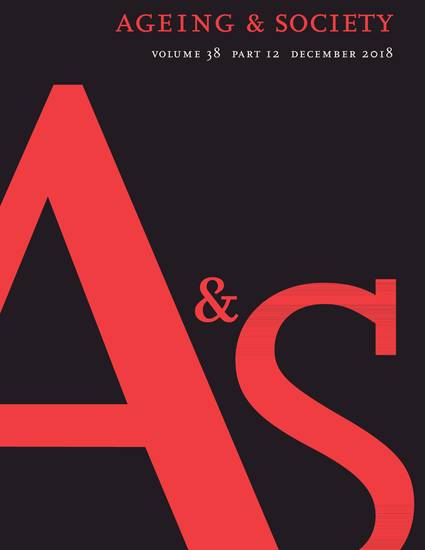
Article
‘I'm happy in my life now, I'm a positive person’: approaches to successful ageing in older adults living with HIV in Ontario, Canada
Ageing and Society
(2016)
Abstract
Worldwide approximately 3.6 million people aged 50 and older are living and ageing with the human immunodeficiency virus (HIV). Few studies have explored successful ageing from the insider perspective of those living well and ageing with HIV. This study draws upon the lived experience and wisdom of older, HIV-positive adults living in Ontario, Canada in order to understand their views and strategies for successful ageing. This qualitative study involved semi-structured interviews with 30 individuals age 50 years and older who are HIV-positive. Purposive sampling techniques were used to recruit individuals who shared their experiences of successful ageing. Constructivist grounded theory coding techniques were used for analysis. Themes related to successful ageing included resilience strategies and challenges, social support and environmental context. Stigma and struggles to maintain health were identified as impediments to successful ageing. Models of successful ageing must take into account the potential for a subjective appraisal of success in populations suffering from chronic and life-threatening illnesses including HIV. Practitioners can draw upon organically existent strengths in this population in order to provide intervention development for older adults around the world who are struggling to manage their HIV.
Keywords
- Successful Aging,
- HIV,
- Qualitative Research,
- aging with HIV
Disciplines
Publication Date
Summer August 31, 2016
DOI
DOI: 10.1017/S0144686X16000878
Citation Information
Emlet, C. A., Harris, L., Furlotte, C., Brennan, D. J. & Pierpaoli, C. (2016). ‘I'm happy in my life now, I'm a positive person’: approaches to successful ageing in older adults living with HIV in Ontario, Canada. Ageing and Society. FirstView Article. DOI: 10.1017/S0144686X16000878
